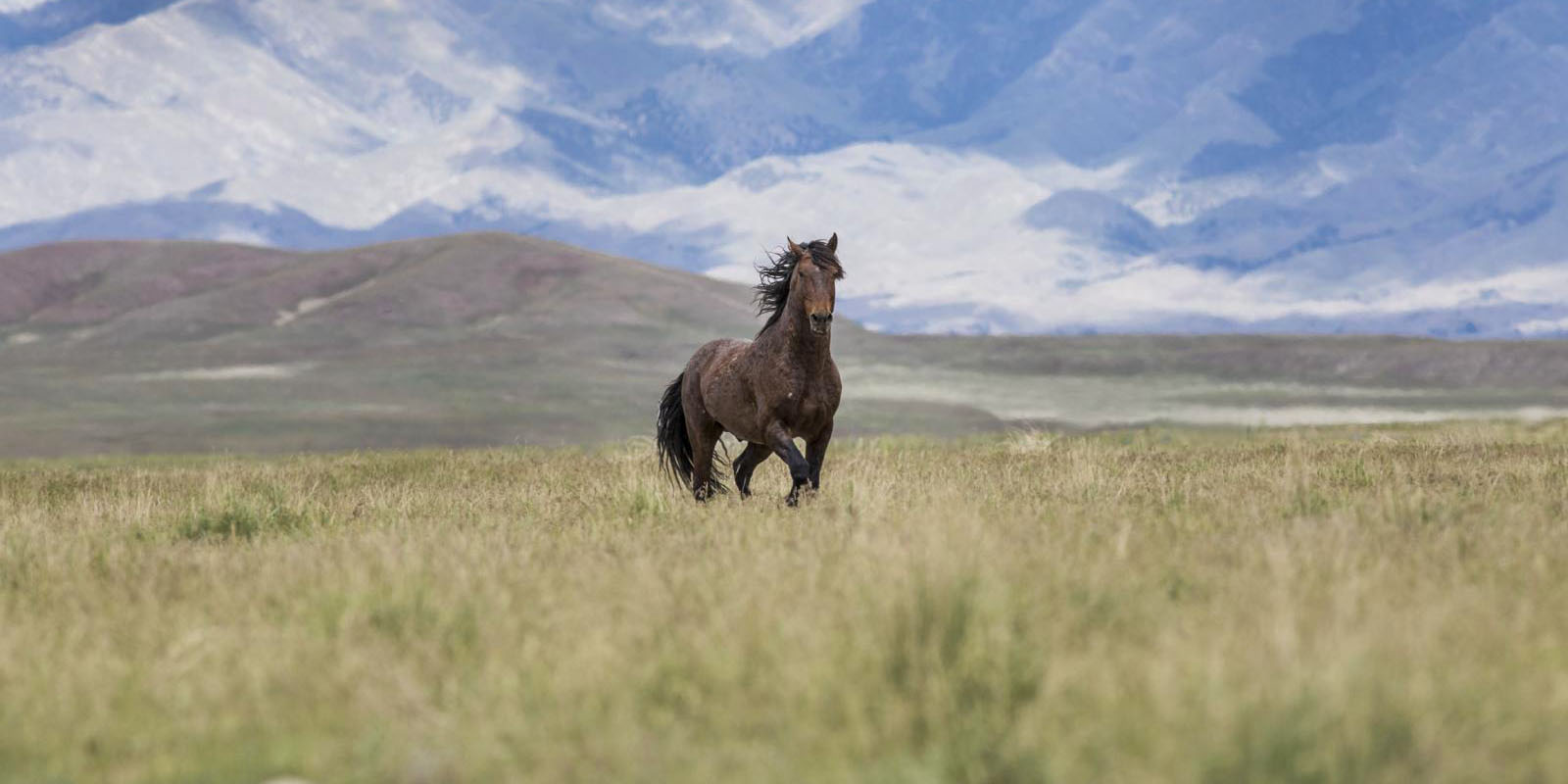Alturas, California (November 5, 2018) … Amidst reports of a contagious outbreak of “pigeon fever” amongst captured wild horses being held in pens in the Modoc National Forest, the American Wild Horse Campaign (AWHC) is calling on the U.S. Forest Service to immediately halt the controversial helicopter roundup currently underway in the Devil’s Garden Wild Horse Territory.
AWHC also blasted the Forest Service’s decision to “euthanize” seven horses showing signs of the disease, calling the killings “unjustified and wrong” because the disease is treatable with veterinary care. In addition, AWHC said that since the bacteria that causes the illness is present in soil and transmitted by flies, killing symptomatic horses will not stem the spread of the disease, contrary to the claims of Forest Service officials.
“We call on the Forest Service to immediately halt the roundup of Devil’s Garden wild horses,” said Suzanne Roy, AWHC Executive Director. “The Forest Service has already captured 824 horses from our public lands in this area, and has identified safe placement for only a fraction of the captured mustangs. The government should not compound its irresponsibility toward these federally-protected icons by capturing more horses and bringing them into pens contaminated with a contagious disease.”
Named for the appearance it can give to a horse’s chest, “pigeon fever” is a contagious bacterium (Corynebacterium pseudotuberculosis) that lives in the ground and infects animals through wounds or small scrapes in the skin, either by direct contact with contaminated soil or objects, or with the assistance of insects like flies. The bacteria also infects cattle, and the infection can be transmitted via equipment or people who come in contact with infected animals or soil.
“As an equine veterinarian, I believe that the Forest Service should be providing veterinary care to horses that show signs of the infection. Horses should not be euthanized for non-lethal conditions,” said Pam Corey, DVM. “Additionally, since the incubation period for pigeon fever can be 3-4 weeks, if the Forest Service proceeds with the sale/adoption event on November 16 and 17, they will be adopting and selling potentially sick horses that may require expensive veterinary care.”
The Devil’s Garden wild horse population is the largest and most significant herd in California. The horses live on 233,000 acres of federally-designated habitat within the Modoc National Forest.
The USFS is in the process of using helicopters to round up 1,000 wild horses from the Devil’s Garden Wild Horse Territory. An estimated 300 horses age 10 and over are being sent to Forest Service holding corrals in the Modoc National Forest, where they will be sold for 60 days “with limitation” for $25 a piece, 24 horses per buyer. After 60 days, the Forest Service will sell remaining horses “without limitation” on slaughter for $1 a piece, 36 horses per week.
Approximately 700 younger horses are being sent to the Bureau of Land Management’s Litchfield Holding Corrals in Susanville to be prepared and offered for adoption. Any horses not adopted after three tries may also be sold “without limitation” by the Forest Service.
The Forest Service’s roundup and sale-for-slaughter plan has drawn widespread national outrage, national media scrutiny, and sharp rebuke from California’s senior U.S. Senator, Dianne Feinstein as well as 23 members of the state legislature.
AWHC and the Animal Legal Defense Fund have filed a lawsuit to block the U.S. Forest Service from selling wild horses for slaughter. Under California law the slaughter or export of horses for slaughter for human consumption is a felony.
###
The American Wild Horse Campaign (AWHC) is dedicated to defending America’s wild horses and burros to protect their freedom, preserve their habitat, and promote humane standards of treatment. AWHC’s mission is endorsed by a coalition of more than 60 horse advocacy, public interest, and conservation organizations.


